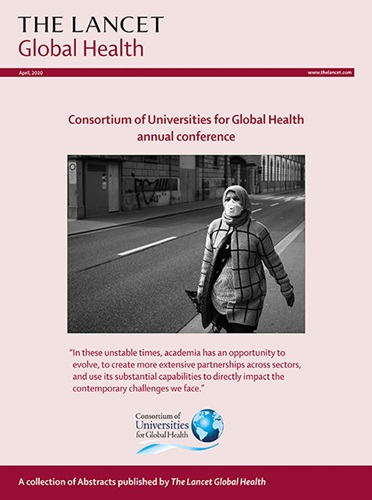Rapid surveys on violence against women in crisis contexts: decision-making guidance based on the UN Women Rapid Gender Assessment surveys on violence against women during COVID-19.
IF 19.9
1区 医学
Q1 PUBLIC, ENVIRONMENTAL & OCCUPATIONAL HEALTH
引用次数: 0
Abstract
Rapid surveys or assessments offer the possibility to collect data in contexts where classic data collection is not feasible (such as health, humanitarian, or climate crises) and when evidence-based urgent action is needed to mitigate the effects of the crisis. Until the past 5 years, rapid surveys were not widely used by practitioners, researchers, or policy makers to measure the effect of crises on violence against women due to a paucity of empirical evidence on their safety and likely utility in such contexts. In recent years, and particularly during the COVID-19 global pandemic, UN Women led the piloting and implementation of such surveys in various countries. We use our experiences from this work and other studies to offer concrete decision-making guidance-in the form of a checklist-for whether to conduct rapid surveys on violence against women in crisis contexts, with consideration of their value, risks, and the minimum safeguards needed to implement this type of work.危机背景下针对妇女暴力的快速调查:基于 COVID-19 期间联合国妇女署针对妇女暴力的快速性别评估调查的决策指南。
快速调查或评估提供了在传统数据收集不可行的情况下(如健康、人道主义或气候危机)以及需要采取循证紧急行动以减轻危机影响时收集数据的可能性。在过去 5 年之前,从业人员、研究人员或政策制定者并未广泛使用快速调查来衡量危机对暴力侵害妇女行为的影响,原因是缺乏有关快速调查在此类情况下的安全性和可能效用的经验证据。近年来,特别是在 COVID-19 全球大流行期间,联合国妇女署在多个国家领导了此类调查的试点和实施工作。我们利用从这项工作和其他研究中获得的经验,以核对表的形式为是否在危机背景下开展针对妇女暴力的快速调查提供具体的决策指导,同时考虑到其价值、风险以及开展此类工作所需的最低保障措施。
本文章由计算机程序翻译,如有差异,请以英文原文为准。
求助全文
约1分钟内获得全文
求助全文
来源期刊

Lancet Global Health
PUBLIC, ENVIRONMENTAL & OCCUPATIONAL HEALTH-
CiteScore
44.10
自引率
1.20%
发文量
763
审稿时长
10 weeks
期刊介绍:
The Lancet Global Health is an online publication that releases monthly open access (subscription-free) issues.Each issue includes original research, commentary, and correspondence.In addition to this, the publication also provides regular blog posts.
The main focus of The Lancet Global Health is on disadvantaged populations, which can include both entire economic regions and marginalized groups within prosperous nations.The publication prefers to cover topics related to reproductive, maternal, neonatal, child, and adolescent health; infectious diseases (including neglected tropical diseases); non-communicable diseases; mental health; the global health workforce; health systems; surgery; and health policy.
 求助内容:
求助内容: 应助结果提醒方式:
应助结果提醒方式:


